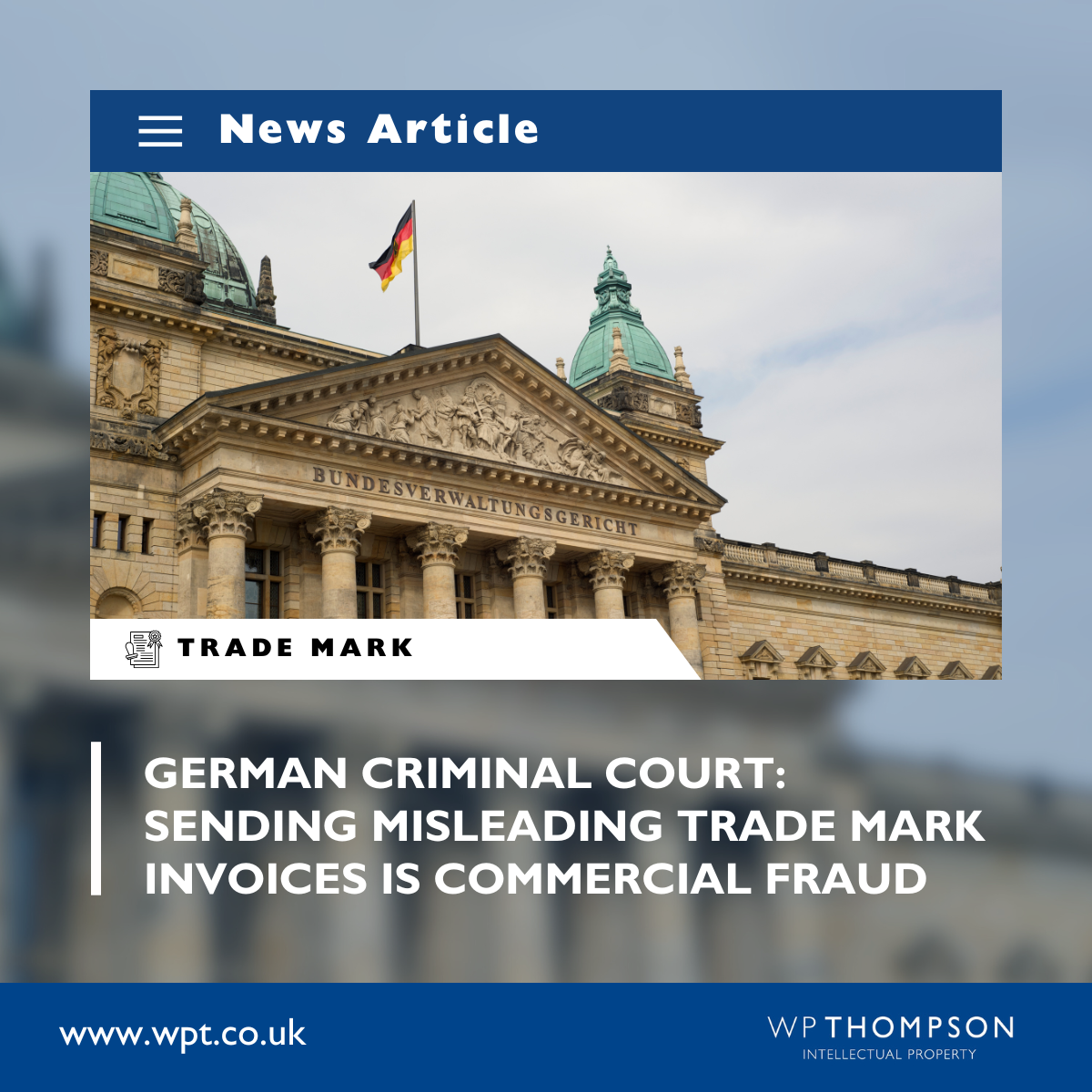Following a criminal complaint filed by the EU Intellectual Property Office (EUIPO), in September 2024 the criminal court of Munich, Germany has convicted three fraudsters for sending misleading payment requests to trade mark owners.
The defendants’ conduct was considered commercial fraud, leading to a sentence of 22 months imprisonment for each defendant and the confiscation of €200,000 (the amount unlawfully obtained) to be used for compensation.
The EUIPO welcomed the German Court’s decision, which is only the second conviction issued against criminals operating a trade mark invoice fraud scheme. Previously, defendants in a similar case in Sweden in 2017 were found guilty of gross fraud.
This type of fraud is unfortunately extremely common, as fraudsters can easily obtain the name and address of trade mark owners, which are publicly available on trade mark registers.
Fraudulent invoices can have different forms: some mimic correspondence from real IP offices (e.g. EUIPO, UKIPO, WIPO, UIBM), by using these offices’ names and logos, while others bear names and logos of non-existent or unofficial offices and registers (e.g. IPTO, WOIP). The EUIPO has created a database of the most common fraudulent payment requests, available here.
We regularly receive reports and queries from clients who receive fraudulent invoices, and if you are unsure about any payment request you have received, we encourage you to get in touch with us before paying. We would be happy to provide assistance.

